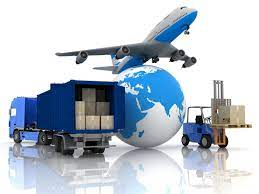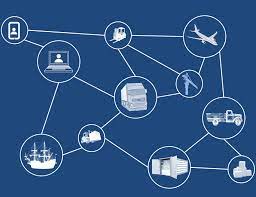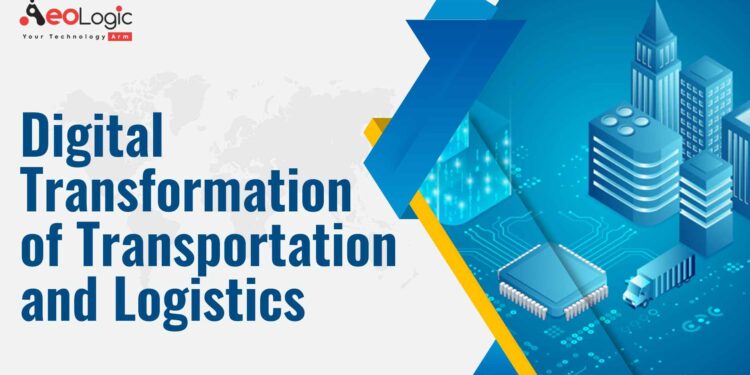Embracing the Future of Digitalization in Logistics and Transportation
Introduction
The logistics and transportation industry has undergone significant transformations in recent years due to the rapid pace of technological advancements. The emergence of digital technologies has disrupted traditional supply chain models and paved the way for new business models that are more agile, efficient and customer-centric. With the increasing use of artificial intelligence (AI), machine learning (ML), blockchain, Internet of Things (IoT), and robotics, the future of logistics and transportation is set to become more automated, intelligent and connected.
Opportunities and Challenges of Digitalization in Logistics and Transportation:
Digitalization presents many opportunities for the logistics and transportation industry, such as:
- Improved Efficiency: Digitalization can help streamline operations and reduce costs, improving efficiency and profitability.
- Enhanced Customer Service: Real-time tracking and monitoring of goods can provide customers with greater visibility and control over their shipments, enhancing customer service and satisfaction.
- Better Decision-Making: The use of AI and other digital technologies can help logistics providers make better decisions based on real-time data and analytics.

The Rise of Digitalization in Logistics and Transportation
Digitalization has been the driving force behind the evolution of the logistics and transportation industry. With the widespread adoption of technologies such as GPS, telematics, and RFID, logistics companies can now track and monitor shipments in real-time, providing greater visibility and transparency to customers. This has also enabled companies to optimize their supply chain processes, reduce costs, and enhance operational efficiencies.
One of the most significant impacts of digitalization in logistics has been the emergence of e-commerce. With the growth of online retail, logistics companies have had to adapt to meet the demand for faster and more flexible delivery options. This has led to the rise of last-mile delivery services, same-day delivery, and even drone deliveries.

The Role of AI and ML in Logistics and Transportation
Artificial intelligence and machine learning are poised to revolutionize the logistics and transportation industry. These technologies can help companies optimize their supply chain operations by predicting demand, identifying bottlenecks, and recommending the best routes and modes of transport. By leveraging big data and analytics, logistics companies can gain valuable insights into customer behavior and preferences, enabling them to deliver more personalized services.
AI and ML can also help logistics companies to automate their processes, reduce errors, and improve efficiency. For example, autonomous vehicles and drones can be used for last-mile delivery, reducing the need for human intervention and increasing delivery speed.

The Role of Blockchain in Logistics and Transportation
Blockchain technology has the potential to transform the logistics and transportation industry by providing greater transparency, security, and traceability to supply chain processes. By using blockchain, logistics companies can create secure, tamper-proof records of transactions, shipments, and deliveries. This can help to reduce the risk of fraud, theft, and counterfeiting, while also providing customers with greater visibility into the supply chain.
Blockchain can also be used to automate and streamline processes such as customs clearance and document management, reducing paperwork and improving efficiency. Furthermore, blockchain-enabled smart contracts can be used to automate payment processes, reducing the need for intermediaries and speeding up transactions.
The Future of Logistics and Transportation
The future of logistics and transportation is set to become more automated, intelligent, and connected. With the increasing use of digital technologies such as AI, ML, and blockchain, logistics companies can expect to see greater efficiency, agility, and cost savings in their supply chain operations. The emergence of new business models such as sharing economy and on-demand logistics will also provide greater flexibility and choice to customers.
However, with the increasing adoption of digital technologies comes the need for greater cybersecurity measures. Logistics companies will need to invest in cybersecurity solutions to protect their data, systems, and networks from cyber threats.
Digitalization has already transformed the logistics and transportation industry, and its impact is set to grow in the coming years. The adoption of digital technologies such as AI, ML, and blockchain will enable logistics companies to optimize their supply chain operations, reduce costs, and enhance customer experience. However, with the increasing adoption of digital technologies comes the need for greater cybersecurity measures to protect against cyber threats. The future of logistics and transportation is exciting, and companies that embrace digitalization will be best placed to succeed in this rapidly evolving industry.
Investing in Digitalization for Competitive Advantage
In order to stay competitive in the rapidly evolving logistics and transportation industry, companies must invest in digitalization. This means adopting technologies such as AI, ML, blockchain, and IoT, and integrating them into their supply chain processes. It also means investing in cybersecurity solutions to protect against cyber threats.
Companies that fail to invest in digitalization risk falling behind their competitors and losing market share. For example, a logistics company that does not offer online tracking and real-time visibility to customers may lose business to a competitor that does. Similarly, a company that does not adopt autonomous vehicles or drones for last-mile delivery may be less efficient and less cost-effective than a competitor that does.
Therefore, investing in digitalization is not only important for improving operational efficiencies and enhancing customer experience, but it is also crucial for maintaining a competitive advantage in the market.

Challenges in Adopting Digitalization
While digitalization offers numerous benefits to the logistics and transportation industry, there are also challenges that companies must overcome when adopting these technologies.
One of the biggest challenges is the cost of implementation. Digitalization requires significant investment in technology, infrastructure, and training. This can be a barrier for small and medium-sized logistics companies that may not have the resources to make these investments.
Another challenge is the complexity of integrating digital technologies into existing supply chain processes. Logistics companies must ensure that their new digital systems and technologies can seamlessly integrate with their existing systems to avoid disruptions to their operations.
Finally, there is the challenge of cybersecurity. As logistics companies become more reliant on digital technologies, they also become more vulnerable to cyber threats such as hacking, data breaches, and ransomware attacks. Companies must invest in cybersecurity solutions to protect their data, systems, and networks from these threats.
Conclusion
The future of logistics and transportation is digital. As the industry becomes more automated, intelligent, and connected, companies that invest in digitalization will be best placed to succeed in this rapidly evolving industry. While there are challenges in adopting digital technologies, the benefits are significant. Companies that can overcome these challenges will be able to improve their operational efficiencies, enhance customer experience, and maintain a competitive advantage in the market.



